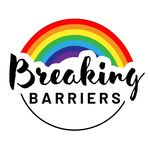Every July, we observe Queer Disability Month, a significant time dedicated to recognizing and
celebrating the intersection of LGBTQ+ and disabled identities. This observance brings attention to
the unique experiences, challenges, and contributions of queer disabled individuals, fostering a deeper
understanding and appreciation of their diverse lives.
Queer Disability Month shines a light on the intersecting identities of queer and disabled individuals,
who often navigate a world shaped by both heteronormative and ableist assumptions. This dual
marginalization can lead to unique experiences of discrimination and exclusion, but also to unique
strengths and perspectives that enrich the broader communities they are part of.
The history of queer and disabled advocacy is rich with resilience and determination. Activists like
Audre Lorde, a Black lesbian feminist poet who spoke about her experience with cancer and the
intersection of race, gender, and sexuality, have paved the way for contemporary movements. In more
recent times, organizations such as the National Queer and Trans Therapists of Color Network and
Sins Invalid, an organization celebrating artists with disabilities, particularly those who are queer,
trans, or of colour, have been at the forefront of advocating for intersectional justice.
Queer disabled individuals face numerous challenges, including healthcare disparities, social stigma
and discrimination, and economic insecurity. Both the LGBTQ+ and disabled communities often
encounter barriers in accessing appropriate healthcare, which can be amplified for those who belong
to both groups, leading to inadequate medical support and health outcomes. Additionally, queer
disabled individuals may face prejudice from within both the LGBTQ+ and disabled communities, as
well as broader societal discrimination, resulting in social isolation and limited opportunities for
meaningful engagement and support. Economic insecurity is another significant issue, as disabled
individuals frequently experience higher rates of unemployment and poverty. When intersected with
queer identities, this economic instability can be further exacerbated, impacting access to housing,
education, and essential services.
Queer Disability Month is also a time to celebrate the resilience, creativity, and contributions of
queer-disabled people. From the arts to academia, activism to everyday life, queer-disabled
individuals enrich our communities in countless ways. Their stories of strength and survival challenge
stereotypes and inspire broader movements for social justice.
Supporting and engaging with Queer Disability Month can be achieved through several key actions.
Education is fundamental, involving learning about the history and experiences of queer disabled
individuals through books, documentaries, and online resources that provide valuable insights.
Advocacy is also crucial; supporting policies and initiatives that address the needs and rights of queer
disabled people, such as inclusive healthcare, accessible environments, and anti-discrimination
protections, can make a significant difference. Additionally, community engagement plays a vital
role. Participating in events and activities that celebrate Queer Disability Month, whether by attending
virtual seminars, supporting queer disabled artists, or engaging in conversations about these issues,
helps build awareness and solidarity.
Queer Disability Month is a powerful reminder of the importance of intersectionality in our
understanding of identity and justice. By recognizing and celebrating the lives of queer disabled
individuals, we honour their contributions and continue the fight for a more inclusive and equitable
world. Let this month be a time of learning, advocacy, and celebration, as we work together to uplift
and support those at the intersection of queerness and disability.

Leave a Reply